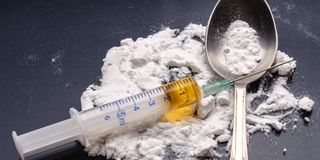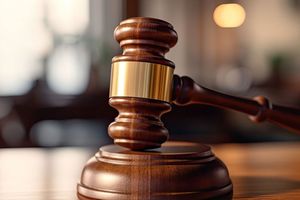West Africa: A growing drug trafficking hub

Heroin production has boomed in Afghanistan in recent years, helping fund the Taliban which returned to power in August.
What you need to know:
- In June, the UN's drugs and crime office (UNODC) said that the amount of cocaine seized on the continent had grown tenfold between 2015 and 2019, rising from 1.2 to 12.9 tonnes.
- Tramadol seized in West and Central Africa accounted for 86 percent of the global total between 2015 and 2019.
West Africa is a small but strategic hub for smugglers moving drugs from Latin America to Europe and the Middle East.
What is Africa's role in the drug trade?
Africa appears to have become an attractive hub for drug transshipments mainly destined for Europe.
In June, the UN's drugs and crime office (UNODC) said that the amount of cocaine seized on the continent had grown tenfold between 2015 and 2019, rising from 1.2 to 12.9 tonnes.
Over the period, 54 percent of the seizures were conducted in West and Central Africa.
Yet the amount of cocaine seized in Africa in 2019 -- 0.9 percent of the global total that year -- was still paltry.
Is cocaine trafficked the most?
Although flows of both cocaine and heroin have increased, the UNODC also points to rising cannabis and tramadol seizures.
Tramadol seized in West and Central Africa accounted for 86 percent of the global total between 2015 and 2019, the report said.
The military in the Sahel state of Niger also seized a record 17 tonnes of cannabis in March, according to NGO Global Initiative Against Transnational Organized Crime, thought to be worth $37 million.
But cocaine is the most valuable drug. Gambian law enforcement officers in January discovered 2.9 tonnes in a salt shipment from Ecuador. The West African state's drug enforcement agency estimated the haul's value at $88.5 million.
Global Initiative said in April that smugglers traffic a variety of drugs across the Sahara, but that "cocaine is by far the most profitable, and consequently the most intricately tied to the stability of the region".
How is Guinea-Bissau involved? -
Impoverished Guinea-Bissau, a former Portuguese colony with a porous coastline and cultural ties to Brazil, is an important stop on the African smuggling route.
Politicians and senior military figures have long been implicated in the drug trade. A trafficking expert in the capital Bissau, who requested anonymity, said that both groups "protected" traffickers.
The lack of strong institutions has also made it difficult to bring smugglers to justice.
In a landmark case in March 2020, a court in Bissau handed down record prison sentences to 12 smugglers linked to the seizure of nearly two tonnes of cocaine the previous year.
But the two main defendants were tried in absentia and never imprisoned, according to Global Initiative. In October that year, the sentences were also reduced on appeal, on questionable legal grounds.
Braima Seidi Ba, one of the main defendants, is facing a six-year prison sentence and has an outstanding Interpol warrant against him.
But the trafficking expert says the Bissau-Guinean national continues to move freely between The Gambia and Guinea, where he allegedly has business interests.
Does instability help traffickers? -
Global Initiative said in its report that trafficking hubs "emerge in areas where the rule of law is weak, but not entirely absent".
Failed states, where drug shipments risk being stolen by bandits, are bad for business.
Smugglers are also constantly varying their routes and methods to keep one step ahead of the law.
The airport in Benin's largest city Cotonou remained open last year despite the Covid-19 pandemic, unlike many others in the region, helping make Benin a "significant transit and departure country for cocaine," the UNODC said.





